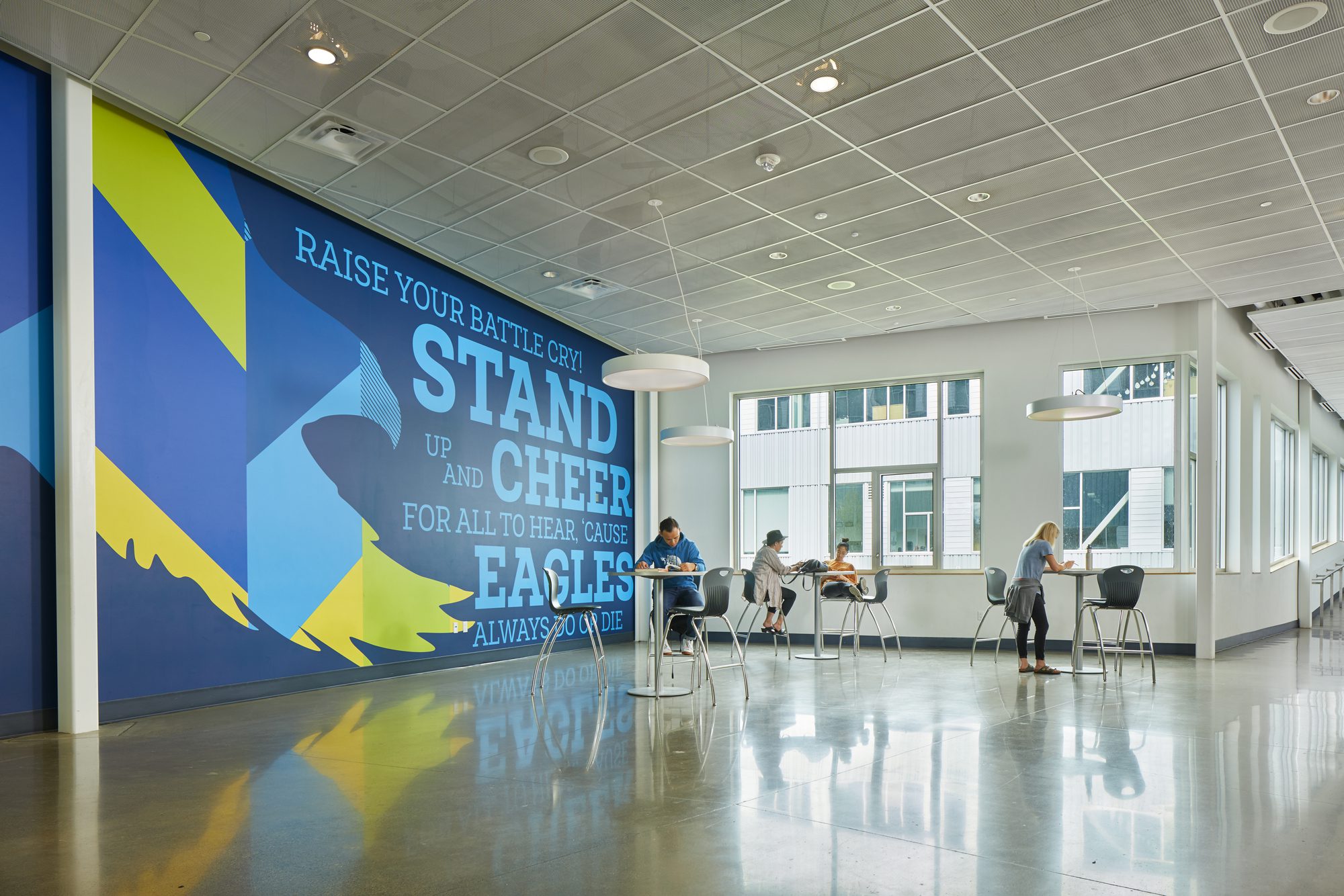Community
The school and Federal Way are remarkably diverse. This student-centered design reflects its community while providing a haven and a cornerstone, a place for students to develop and grow that engenders pride of place.
The design of Federal Way High School is rooted in a progressive vision of how design supports and advances education. Driven by the client to rethink how educational facilities respond to changing teaching methods, the team began with facilitated programmatic studies that engaged the administration, community, and students. We scrutinized presumptions about pedagogy, program, and function. As a result, designers discerned the need for the new replacement high school to offer two primary types of spaces—flexible and adaptable—to serve today’s students and provide a future-proof strategy to serve those of tomorrow.
232,000 sf
Federal Way, WA
2018
The school and Federal Way are remarkably diverse. This student-centered design reflects its community while providing a haven and a cornerstone, a place for students to develop and grow that engenders pride of place.
The 235,000 SF high school’s design readily lends itself to the adoption of cutting-edge learning models and upholds the belief that learning happens everywhere. Its two halves express the dual concepts of flexibility and adaptability. One half houses the auditorium, gymnasiums, and activity rooms. Spatial requirements, such as the size of a basketball court, drive these spaces, but are also flexible—quickly changeable—due to their large size and open program area.
The other half provides the bulk of the building’s classroom space, as well as several areas programmed as “third places,” which are neither home nor classroom where students can connect with peers and faculty. Locating fixed, “50-year” elements—such as structural columns and bathrooms—away from central spaces allows the three wings of classrooms to maintain their adaptability, to change repeatedly over time.
These two halves—connected by the school’s heart, the Commons—frame an outdoor courtyard, which supports the goal to “make a place” for a wider community seeking to further define its identity.
Goals for interior spaces include maximizing daylight, choosing finishes that are not precious, and providing a strong school and community identity through fun graphics developed with the students. To that end, designers intentionally selected simple, inexpensive, and readily replaceable finishes to unencumber the district from adapting the building to ongoing needs, as intended.





